The initial days of my post-COVID months were about finding assistant direction work in Mumbai – hoping that I’d be later spotted for writing stories and screenplays. That didn’t end well. There is a suburb called Andheri West, circled with production houses and casting agencies. Crowds of artists hand out portfolios here every single day. Mumbai really doesn’t like to stop. It is as tough as tough can get. This means that it is very logic driven – the heart doesn’t get a lot of say. So when you come across someone like Avinash Tiwary who is all heart… all feels, you see hope. You get to know what making people feel does. It comes across as magic. Maybe it even is. Or something else that cannot be worded.
As I sat in front of my laptop screen, for this interview, I could only think about how difficult it will be to be objective this one time. In all fairness, he seems incapable of giving a bad performance. In all objectivity, that is testament of his abilities.

I cannot, even if I tried to, hide how I too look forward to his work. So I’ll be honest about the ‘whys’ – because honesty is what his journey is all about. Now, this was right after I booked my tickets for the Laila Majnu re-release. This was right after I had watched reels on reels of Laila Majnu edits on my Instagram feed. One would think that something as big was planned. It wasn’t.
“It’s something that came out of nowhere. I visited Srinagar out of nowhere, and I visited this cafe called Cafe Liberty. I took a picture of it and posted it. Cut to, there were four-five girls who walked in and took pictures and videos. And the very next day I was tagged by so many women just saying “looking for Qais Bhatt in Srinagar”. Then we did a meet and greet which we did not announce. But there was a massive rush there. That is when the world woke up to the fact that there is such love for Laila Majnu. And that we should re-release the film in Srinagar. From there to it becoming a nationwide thing is absolutely something we had no idea about. It’s divine… Sajid said this, that this is some kind of divinity because there is no other explanation that I have.”
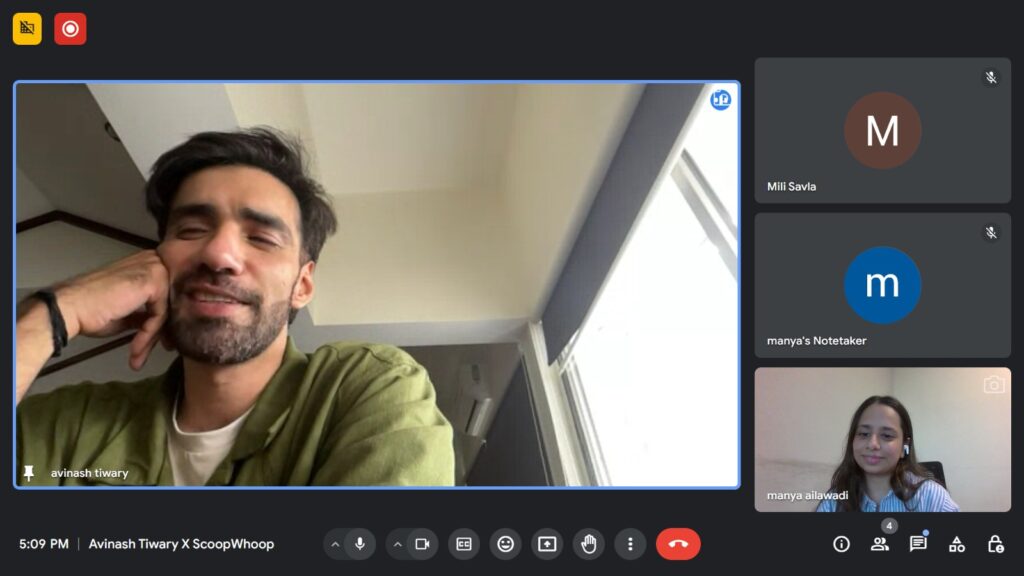
Divinity. That is the word. What Laila Majnu has now done for cinema is something that will remain impalpable. There is clearly a sense of purity attached to it – in its making. Like there is to Majnu or Qais. Like there is to Avinash Tiwary. Ironically, but in complete coherence with the theme of the film, the society comes bearing specific ideas of how one should be. Or as the actor put it: “distinguishing between reality and projection is a Herculean task.” He is one of those rare people who doesn’t like to project himself as deserving, probably because he likes his work to do the talking. “I think I don’t talk about it much, I’m not someone who is constantly creating noise for you to feel that he is around. I’m pretty old school about it, which is why I think a Laila Majnu still persists. I think at least kuchh log toh organic reh gaye hain. And I think with time, when everything is all over the place, things which are organic find their place. It just takes a little longer.”
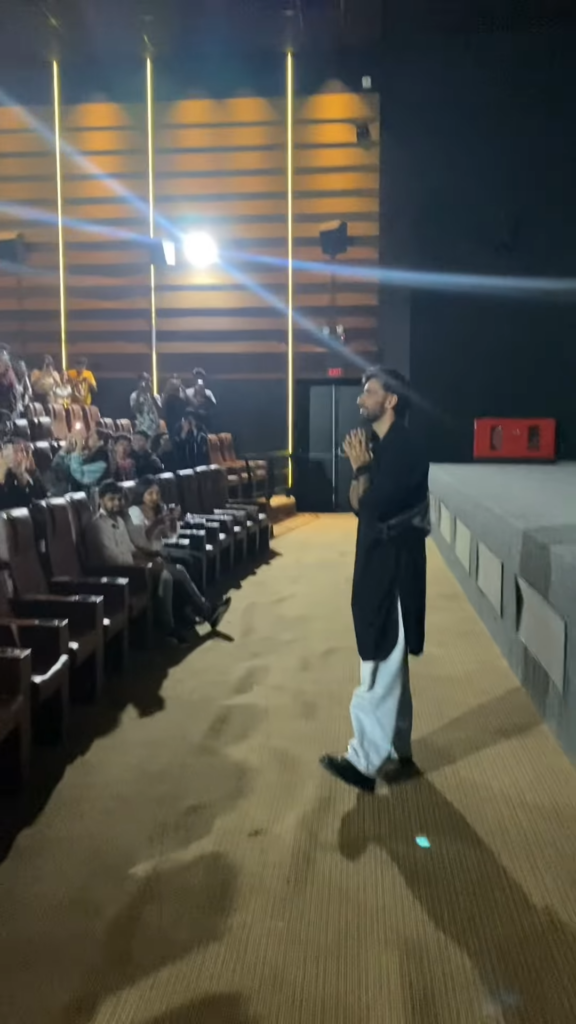
Clearly, there is no scope for someone like him to feel the pressure to stand out or be seen.“The pressure would exist if I felt that I’m not enough the way I am. I would have to do something so I could fit in. I don’t know where this comes from – but I’m blessed with a lot of security within. I also, over a period of time, have worked on making myself believe that I’m enough the way I am. That I don’t have to do what I don’t desire to.”
That is not to say that there was no struggle attached to this one journey. Something as simple-sounding as convincing the family for him pursuing a career in acting was a part of eventually doing films. He made sure to do it the right way – in his sense of the word. He says, “Initially the rebel in you takes over, because you want to safeguard your dreams. But I have a habit of looking at things differently. And I wanted to understand where their fears were coming from. They were just scared. Then I felt it was my responsibility to get this fear out of them. Get them out of this fear.”
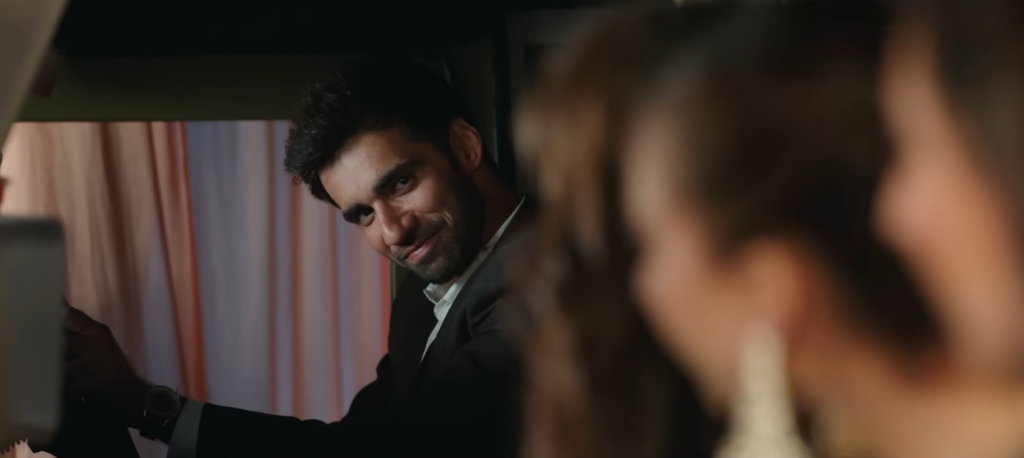
I think there is a very thin line that separates an artist from a star. A star can forget their privilege. An artist only fuels from it. Avinash Tiwary acknowledges that. “Every step I take, I turn towards my parents and be grateful to them. I wouldn’t have sustained if they were not with me. I know a lot of people come to Bombay, and don’t have the fight left in them because it’s a tough one. I always had to go back home and my mom would caress my head… and say today was a bad day, we will try again tomorrow. I think we don’t talk enough about privileges. I feel not many have the privilege that I have.”
There has also been literal struggle attached to his journey. “I decided to train myself. That’s when I first came to Delhi. At that time I was feeling guilty because I was doing something my parents didn’t want. I would spend as little as possible. From there I went to New York. I used to wait tables there post my training. I cleaned toilets, and chicken pieces which I had not done at the time. But just the feeling of calling my father and saying that I need money… I didn’t want to do that. So I kept working. It was a tough life then. Now I look back and think that that was the most joyous time I had. That has prepared me for any kind of hardship that comes my way. I realized that if in the most difficult time I was having so much fun, anything else is joyous compared to that.”
When you truly love something, even the worst parts of it do not bother you. Even the hardships seem like core memories. He clearly loves what he does more than most artists are capable of. But love gets very selfless, there are times where you give more. You do more. You do it solely for the passion of it. Like how he wants to turn Indian cinema into the next big thing. “It’s high time that Indian content goes global. That’s what I’m looking at – we have to ensure that Indian content reaches the world. Our stories need to be told to the world, I think we are not any less. Time toh aa gaya hai.”
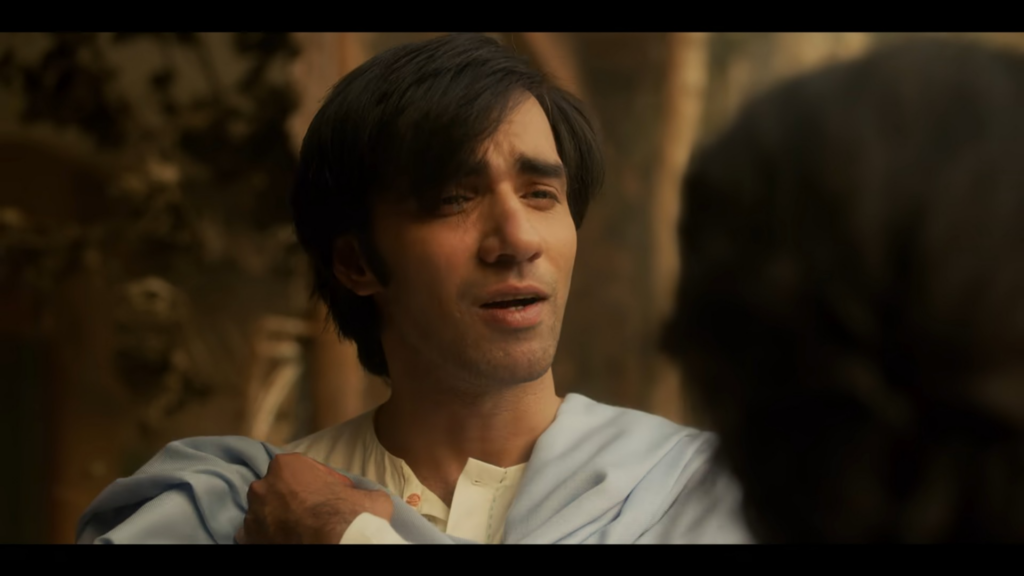
Another thing that differentiates an artist from a star is that they see every other artist as equals. There is respect for others’ abilities. He has always made sure to acknowledge the work of all the crew members. And then he also respects his art, like the art clearly respects him back. “I really liked working on Bambai Meri Jaan. The kind of feeling that I had on that set, with everyone believing that we were creating something good. I still believe that it is one of the top quality produced shows.”
For someone who has experimented (and bested) more genres than most actors in the generation, there is a sense of experience that Tiwary holds. He knows how to find a good story. He says, “Who is telling the story, who is getting this story made and who it is being made for – all these things become important. [With experience] you realize that it’s not just opportunities, you have to ensure that when you take on something, it has to reach the world.”
But there is no calculation to his method of working. It is just sheer love for wanting to tell stories – and good ones at that. So creating them comes with no adulteration for him. It has to be untempered, which is something he has found while working with a lot of first time directors.
Which brings me to the third thing that differentiates an artist from a star: humility. You need to know that a film is not just its actors. “I have made a career working with first time directors. With them, there is a different kind of passion. There is no calculation. Wo thoda pure hota hai. That way, I’ve been blessed, there is a lot of purity that has come through them in my work. I want to really acknowledge all of them.”
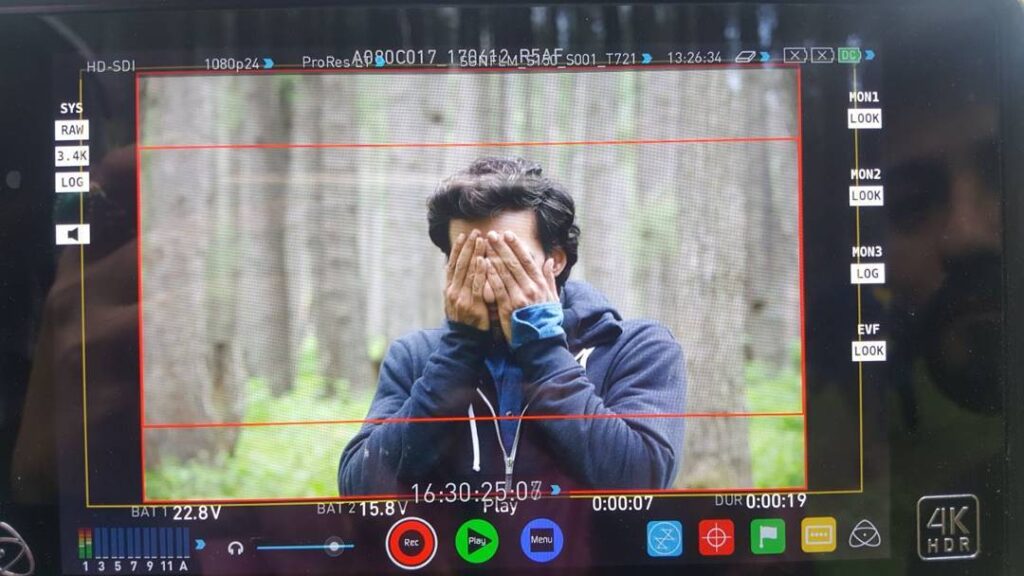
In a world that likes to ‘look good’ than be it, and in an industry where chasing vanity can easily be appealing, Avinash Tiwary appears to be what authenticity looks like. Which is also his explanation for Laila Majnu’s relevance.
“There could be several answers, but if you break them all down, it comes to the purity of the emotion that Laila Majnu talks about. The purity of not being bound by anything in the world. The film gives you the sense that with love you can let go of all the social conditions. The way Sajid told this story also made it very experiential for people who saw it. When you saw Laila-Qais go through what they went through, you also experienced that with them. And once you experience that kind of abandon, it’s very difficult to let go. Which is why people have wanted their close ones to experience the same things. Because it’s slightly rare. To just be able to say, you connect too? That makes us connect more.”

When you are someone who lets the merit of the work be their voice, you are drowned by other people’s noises. If you don’t say much, people think you don’t have much to say. The houseful theaters of Laila Majnu’s re-release are proof that attention is temporary – it requires shouting. There is more permanency to love – it’s calmer, because it’s quieter.
If there’s anything that we can learn from Laila Majnu and its Majnu, it is that if you do something out of complete and utter honesty, it will find its people. It will take time – it may test you – but it will find its people. You will be rewarded.

This brings me to thinking: we need to be more deserving of people and artists like Avinash Tiwary. Which is also the final differentiation (for now) between artists and stars. We need artists; stars need us. And all artists can be stars, but not all stars can be artists. Because if journeys like his wouldn’t exist, there would be very little hope for honest work.
So if anyone needs to be better, it’s us, as audiences – to enable artists like him.















